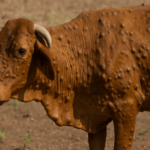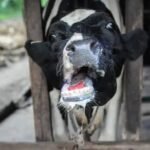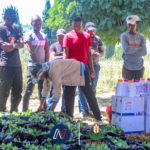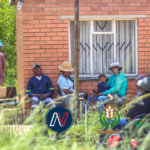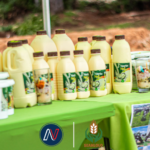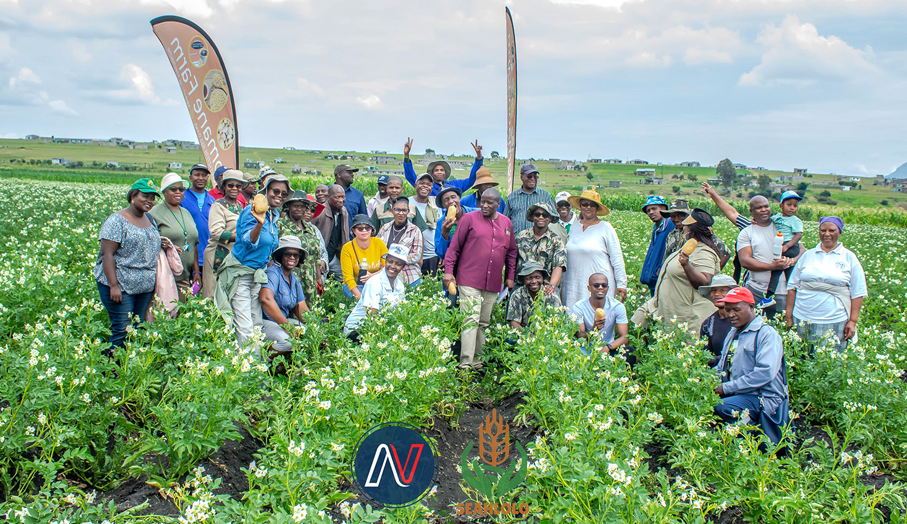Next Level and RegenZ launched the Solynta Hybrid True Potato Seed (HTPS) at Qalakheng Evergreen Farms in Mohale’s Hoek, marking a major step forward in innovative potato farming.
For centuries, farmers have relied on tubers as the primary means of cultivating potatoes, storing and replanting them season after season. However, this age-old method is now being revolutionised by Hybrid True Potato Seed (HTPS)—a cutting-edge innovation developed through controlled crossbreeding of different potato varieties.
This breakthrough enhances yield potential, disease resistance, and sustainability in potato farming.
Unlike traditional tubers, HTPS consists of botanical seeds—commonly called “hips”—produced through hybrid breeding.
This scientific advancement not only retains the best traits of parent varieties but also introduces stronger, more resilient crops capable of withstanding climate challenges.
According to Alex Platt, Director of RegenZ, this technology has been in development for 14 years by Dutch agritech leader Solynta.
He said it has already shown remarkable success in Europe, Kenya, and South Africa, with Kenya emerging as a key testing ground.
“The Hybrid True Potato Seed enables smallholder farmers to double their yields with fewer inputs,” Platt explained.
He highlighted how the innovation supports food security by increasing agricultural productivity while reducing the need for excessive chemical treatments.
Furthermore, HTPS simplifies storage and transportation—offering farmers a more practical, cost-effective alternative to bulky traditional seed tubers.
The launch event at Qalakheng Evergreen Farms included a harvest demonstration, showcasing the potential of hybrid true potato seeds.
Two high-performing potato varieties—Solhy012 and Solhy017—were presented, both well-suited for the fresh market.
Among the attendees was Lesole Sefume, a research officer from the Department of Agricultural Research, who praised the collaboration between Next Level and RegenZ.
“We are always looking for new innovations to improve agriculture in Lesotho, and this development will significantly enhance potato production. It’s a work in progress, but the potential impact is promising,” Sefume stated.
Reflecting on the journey that led to this milestone, Sekhoane Mokemane, Commercial and Distribution Director at Next Level, emphasised the strategic partnership behind the success of HTPS.
“The launch and successful harvest of these seeds prove what we can achieve through collaboration,” Mokemane said, stressing that this initiative is not just about boosting yields but also about driving economic benefits for Lesotho.
“This partnership is designed to bring long-term advantages to the country, ensuring food security while creating employment opportunities in agriculture,” he added.
In February, Mr Anping Ye, Director of the South-South and Triangular Cooperation Division (PST), Food and Agriculture Organization of the United Nations (FAO) met with Thabo Mofosi, Minister of Agriculture, Food Security and Nutrition and Thesele Maseribane, the former Ambassador and Permanent Representative of the Kingdom of Lesotho in Italy, as a follow-up to an earlier discussion between the FAO Director-General, QU Dongyu and His Majesty King Letsie III of the Kingdom of Lesotho.
The meeting emphasised the critical role of potato cultivation in enhancing food security and improving livelihoods in Lesotho.
Both parties acknowledged the necessity of strengthening the capacity of local potato growers to increase productivity and ensure sustainable agricultural development.
During the meeting, the significance of South-South cooperation in fostering knowledge and technical exchanges was underscored with an emphasis that exchanges are pivotal in helping Lesotho acquire modern agricultural technologies, particularly in the production of high-quality seed potatoes for smallholder farmers and commercial potato growers, and Minister Mofosi reaffirmed the importance of potato cultivation as a key crop identified under FAO’s One Country One Product (OCOP) initiative.
The meeting discussions focused on FAO’s potential role in supporting Lesotho’s agricultural sector through capacity-building initiatives, knowledge sharing, and technical assistance within the South-South and Triangular Cooperation framework.

